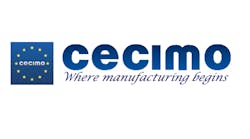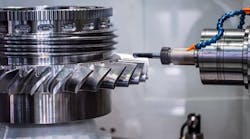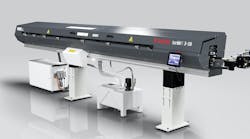The trade association representing Europe’s machine tool builders issued a “manifesto to identify the skills-related needs” of their industry, indicating a shared concern with their North American cohort. The priorities listed by CECIMO are addressed to EU, regional, and national authorities, but also to the education and training establishment to explain the needs of companies working in the machine-tool sector.
CECIMO is a consortium of 15 national associations of machine tool builders, represents approximately 1,500 industrial enterprises in the E.U., European Free Trade Assn. (EFTA), and Turkey, and covers more than 97% of total machine tool production in Europe, and more than 33% worldwide.
The manifesto was developed from among the conclusions of machine tool companies and associations in workshops conducted at the CECIMO General Assembly in June. The recommendations are addressed primarily to regional, national and European authorities, as well as education and training suppliers who can provide essential support to the companies’ existing activities to develop skills.
“Machine tool companies in Europe already put a lot of effort and resources to train their workforce, to foster cooperation with universities for skills development, and to promote their sector toward young people,” the statement noted but the manifesto calls for coordinated efforts to increase the availability of skilled workers in Europe, in terms of the number of workers and the nature of their skills.
According to CECIMO director general Filip Geerts, European machine tool builders succeed because of “a combination of engineering know-how and a highly skilled workforce, which enable a strong innovation capacity and quality production tailored to customer needs.”
However, Geerts pointed out that concerns about the availability of skilled workers has increased, and the apparent decline of available skills “in the pipeline in Europe” risks future growth and innovation in the sector.
As “technology integration” increasingly defines state-of-the-art machine tools, machine-tool builders have an increasing demand for skilled technical personnel, according to CECIMO.
Also, as the machine tool businesses become more global in nature, the builders need to connect to global supply chains to serve their customers. This requires them to ‘beef up’ the skills of current and future workers to include competence in management, marketing, languages, and communication.
CECIMO called for adapting education and training programs “to build occupational and transversal skills” in line with current requirements.
“The CECIMO manifesto calls on policy-makers at all levels to recognize the efforts of industry and do their part to complement these activities. Europe should take the skills challenge seriously. This is not only a competitive necessity, it also is essential to offer young people better job opportunities,” Geerts stated.









